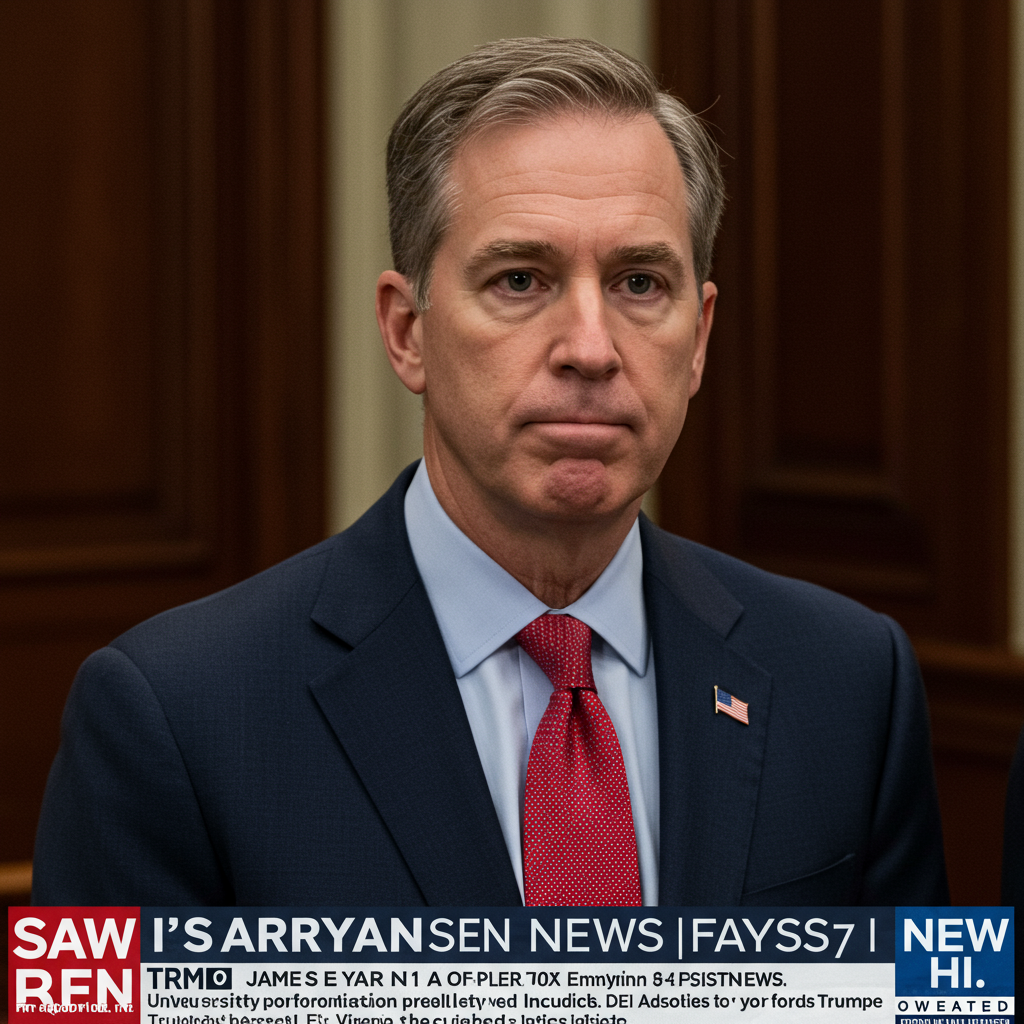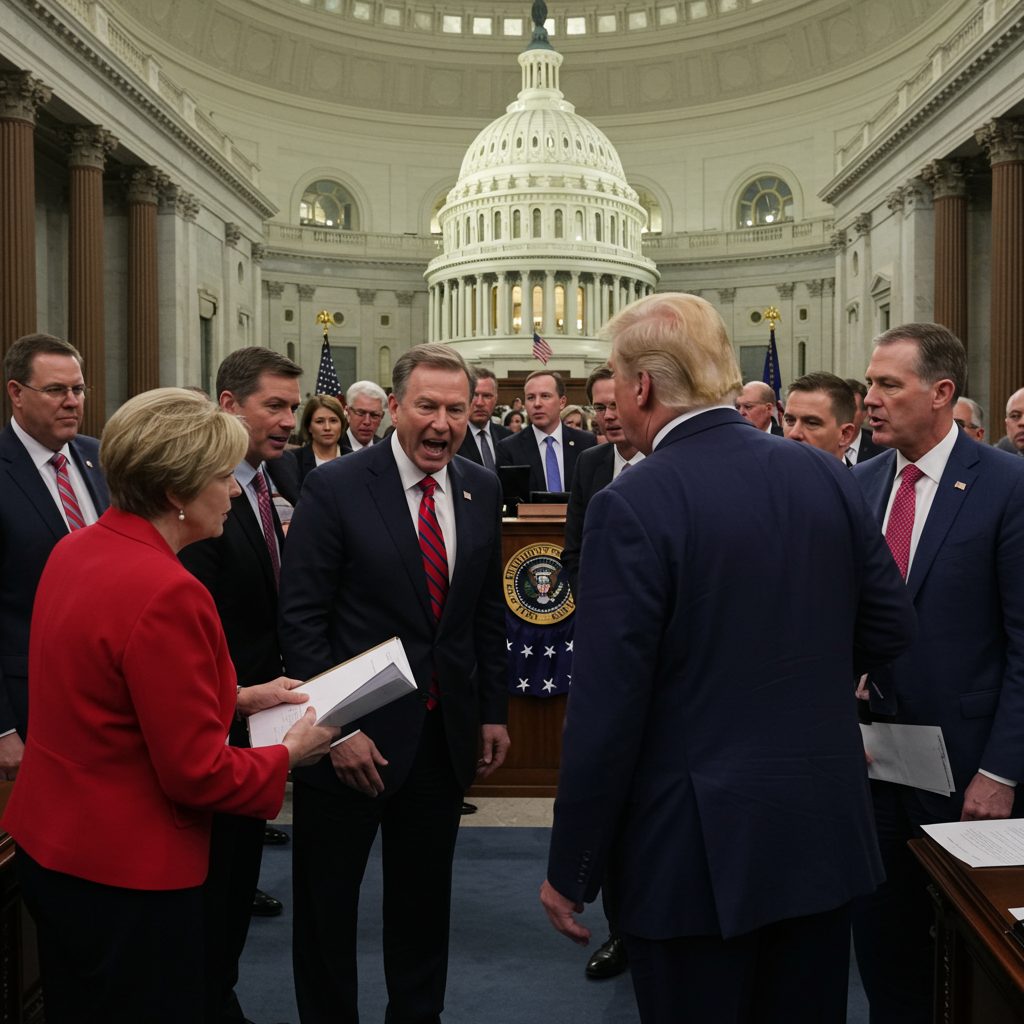President Donald Trump announced an extraordinary directive, authorizing the deployment of U.S. military personnel to Portland, Oregon, with a controversial green light for “Full Force, if necessary.” This pronouncement, made on Truth Social, immediately ignited a firestorm of criticism from local and state officials who questioned both the legal grounds and the necessity of such an intervention in their “safe and calm” communities. The move marks a significant escalation in the administration’s use of federal power domestically, drawing comparisons to earlier deployments and reigniting debates over civil liberties and presidential authority.
Trump’s Directive: A Call for “Full Force”
On Saturday, September 27, 2025, President Trump publicly declared his intent to dispatch troops to Portland. He specified that “at the request of Secretary of Homeland Security, Kristi Noem,” he was “directing Secretary of War, Pete Hegseth, to provide all necessary Troops to protect War ravaged Portland, and any of our ICE Facilities under siege from attack by Antifa, and other domestic terrorists.” The inclusion of “Full Force, if necessary” within this declaration left many questioning the scope and potential implications of the order. This deployment was framed as a response to perceived threats, particularly targeting Immigration and Customs Enforcement (ICE) facilities and linking the unrest to “Antifa,” a decentralized movement the President had recently designated a domestic terror organization.
Widespread Opposition from Oregon Leadership
The President’s announcement was met with swift and unequivocal condemnation from Oregon’s political landscape. Governor Tina Kotek stated her team had been “provided no information on the reason or purpose of any military mission.” She firmly asserted, “There is no national security threat in Portland. Our communities are safe and calm,” urging Oregonians to remain peaceful.
Portland Mayor Keith Wilson vehemently opposed the federal intervention. Prior to Trump’s official directive, Wilson warned of an influx of federal agents, noting, “We did not ask for them to come. They are here without clear precedent or purpose.” Following the full force authorization, he emphatically declared, “The number of necessary troops is zero, in Portland and any other American city.” He accused the president of instigating lawlessness and potentially harming commerce. Senator Jeff Merkley (D-Ore.) urged residents to “say we are not going to take the bait,” advocating for peaceful protest at a distance from federal troops to avoid conflict. Representative Maxine Dexter (D-Ore.) called Trump’s actions “authoritarian” and vowed to use “every tool at our disposal” to oppose the move, while Oregon Secretary of State Tobias Read found the directive chilling to the core.
Legal Challenges and Constitutional Concerns
The legal foundation for such a widespread military deployment within a U.S. city remains highly contentious. A critical piece of legislation, the Posse Comitatus Act of 1878, generally prohibits the use of federal military forces for domestic law enforcement purposes. Pentagon officials themselves appeared surprised by Trump’s Truth Social post, expressing uncertainty about the specific orders and their entailment. One anonymous official speculated it might involve a National Guard mission focused on logistics, similar to past operations in Los Angeles and Washington D.C., rather than direct engagement.
Previous deployments by the Trump administration have faced significant legal scrutiny. A federal judge in September had already ruled that the 2020 use of military troops in Los Angeles was illegal, though this ruling was stayed pending appeal. This precedent raises serious questions about the legal standing of a “full force” deployment in Portland. Furthermore, the executive order designating Antifa as a domestic terror organization lacks clear legal mechanisms, as U.S. law does not typically allow the formal designation of domestic groups or ideologies as terrorist entities. Critics argue such an order could face significant constitutional challenges, potentially infringing upon First Amendment rights to free speech and assembly.
A Pattern of Federal Intervention
The Portland directive is not an isolated incident but rather fits into a broader pattern of federal intervention pursued by the Trump administration. Earlier in the year, 2,000 National Guard troops and 700 Marines were deployed to Los Angeles to address unrest following immigration protests, a move that was later legally challenged. In August, the National Guard and federal agencies were dispatched to Washington D.C., where the police force was federalized. While administration officials claimed a decrease in crime, D.C. residents largely opposed the takeover, and the city subsequently sued the Trump administration over the “illegal deployment.”
Trump had also previously threatened military deployments to other Democratic-led cities, including Chicago, Memphis, and New Orleans, citing concerns about street crime and public order. The recent order regarding Portland, particularly after the shooting death of conservative activist Charlie Kirk and the subsequent Antifa designation, underscores a hardening stance against perceived left-wing militancy. Department of Homeland Security (DHS) officials have pointed to ongoing protests outside the Portland ICE facility, alleging “Antifa-affiliated rioters” have engaged in violence and harassment, including doxxing ICE officers. However, local leaders emphasize that Portland police successfully manage most protests, addressing violence while protecting free expression, often without federal aid.
Community Impact and Differing Views
The prospect of federal military deployment casts a shadow over Portland’s communities. Mayor Wilson warned that such a presence harms “commerce and prosperity and opportunity.” Senator Ron Wyden expressed concern over “credible” reports that federal agents might be “replaying the 2020 playbook,” which saw federal forces inflaming tensions during Black Lives Matter protests. Despite widespread condemnation from Democratic leaders, some Republican officials, like U.S. Labour Secretary Lori Chavez-DeRemer, voiced support, thanking Trump for protecting federal facilities and describing Portland as a “crime-ridden war zone.”
However, Portland officials highlighted recent progress, with Mayor Wilson noting a 51% year-to-date reduction in homicides by August, suggesting federal intervention was unnecessary and counterproductive. The controversy surrounding the “Antifa” designation also sparked confusion among protesters, with some clarifying that “Antifa’s literally just an ideology,” not a structured group, making its designation as a terror organization perplexing and legally tenuous. The core tension lies between the federal government’s assertion of authority to maintain order and local governments’ insistence on their autonomy and capacity to manage civil situations.
Frequently Asked Questions
What is the legal basis for deploying U.S. troops in American cities?
The deployment of U.S. military troops for domestic law enforcement is primarily governed by the Posse Comitatus Act of 1878. This federal law generally prohibits the use of the military to enforce civilian laws unless expressly authorized by the Constitution or an act of Congress. While presidents can invoke the Insurrection Act, which provides some exceptions, such deployments are often controversial and have faced legal challenges, as seen with a federal judge ruling Trump’s earlier Los Angeles deployment illegal. The specifics of “Full Force” in Portland, beyond supporting local law enforcement, remain legally ambiguous.
Which officials publicly opposed President Trump’s directive in Portland?
President Trump’s directive for military deployment in Portland was met with strong opposition from a wide array of Oregon’s local and state officials. Key figures who publicly condemned the move include Oregon Governor Tina Kotek, Portland Mayor Keith Wilson, Senator Jeff Merkley (D-Ore.), Representative Maxine Dexter (D-Ore.), and Oregon Secretary of State Tobias Read. These leaders collectively asserted that Portland faced no national security threat, that communities were safe, and that federal intervention was unwarranted, unwanted, and potentially harmful.
How might federal military deployments impact local communities and civil liberties?
Federal military deployments can have significant impacts on local communities and civil liberties. Mayors, like Portland’s Keith Wilson, have warned that such interventions can harm commerce, prosperity, and local opportunity. They may also escalate tensions, as suggested by Senator Jeff Merkley, who advised residents to avoid provoking federal troops. Critically, these deployments raise concerns about the curtailment of First Amendment rights, including freedom of speech and assembly, especially when coupled with designations like “Antifa” as a domestic terror group without clear legal definitions or mechanisms.
Conclusion
The President’s authorization of “Full Force” military deployment in Portland, Oregon, represents a critical moment in the ongoing debate over federal power, states’ rights, and civil liberties. While the administration frames the action as necessary to protect federal facilities and combat domestic terrorism, local and state leaders view it as an unwarranted, legally dubious, and potentially inflammatory overreach. The incident highlights the persistent tension between national security concerns and constitutional protections, particularly as presidential administrations increasingly consider domestic military interventions. As legal challenges and political discourse continue, the long-term implications for American cities and the balance of power remain uncertain.



